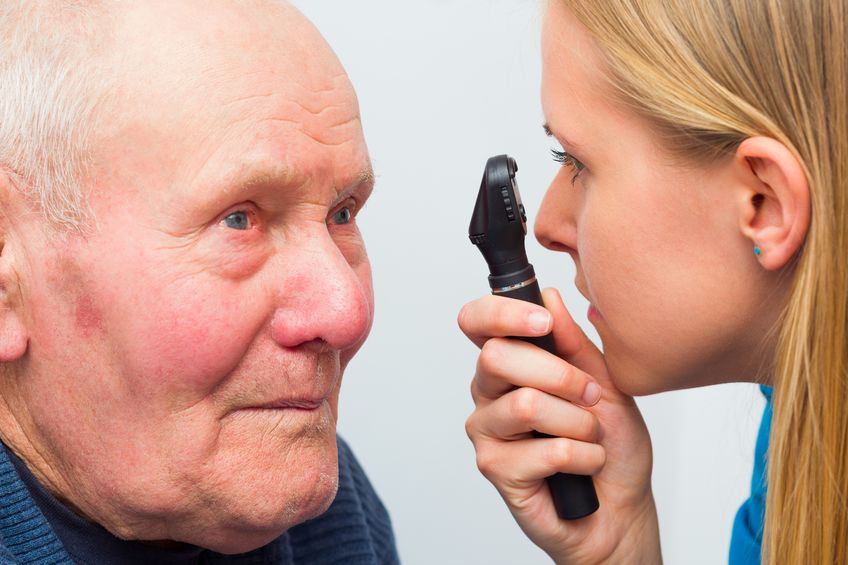
Signs and Symptoms of Glaucoma
As we age, there's a ton to pay attention to in terms of our health. One area that tends to be overlooked is our eye health. More than 12 million Americans have a vision impairment. For many people, wearing glasses or contacts has been a part of life since childhood, and a slow digression in vision feels normal.
January is National Glaucoma Awareness Month, an eye condition that affects more than 3 million Americans and can lead to irreversible blindness. This new year, use the month to vow to better eye health and learn about glaucoma signs and symptoms. Understanding this condition could save you from losing your vision in the future.
What is Glaucoma?
Glaucoma is a common eye condition with more than 200,000 cases each year in the United States. Glaucoma develops when high eye pressure damages the nerves connecting the eyes and the brain. It's a slow-progressing condition that often leads to a loss of eyesight and, in some cases, total blindness. While there's no way to bring back vision after it's lost, surgery to release eye pressure can slow or stop glaucoma from progressing.
Since it's a slow-moving condition, many people don't notice early signs of glaucoma, although late symptoms include pain and vision loss. Glaucoma is most common in people aged 40 and older and those with a family history of glaucoma. It's also common in people with high blood pressure, heart disease, diabetes, or sickle cell anemia.
Types of Glaucoma
Glaucoma refers to a type of eye condition that affects a person's vision. There are two main types of glaucoma.
- Open-angle glaucoma. This is the most common form of glaucoma and occurs when the trabecular meshwork is blocked, causing gradual pressure on the eye. Many people don't experience any open-angle glaucoma symptoms and often don't notice a problem until they begin losing vision.
- Angle-closure glaucoma. This type of glaucoma occurs when the bulging of the iris blocks the drainage angle. Symptoms of angle-closure glaucoma include severe headache, eye pain, eye redness, and blurred vision. This condition may suddenly occur and is considered a medical emergency.
All forms of glaucoma happen because there is unwanted pressure on the eye due to a blockage. Different types of glaucoma are diagnosed, depending on how the blockage occurs.
- Pigmentary glaucoma-When the eye's drainage system becomes clogged by pigments from the iris, it's referred to as pigmentary glaucoma. It's most common in younger adults because there is less pigment in the eye to cause a blockage as we age.
- Uveitic glaucoma- The middle layer of the eye is called the uveitis. Its purpose is to provide blood to the retina. If the uveitis becomes swollen or inflamed and puts pressure on the eye, it's called uveitic glaucoma.
- Exfoliative glaucoma- Sometimes, the eye's outer layer can shed a flaky material that gets stuck in the drainage system, causing exfoliative glaucoma. This type of glaucoma is most common in those of northern European descent after the age of 40.
Living with Glaucoma
Unfortunately, once you lose your vision to glaucoma, there's no way to get it back. Early detection is the key to protecting your vision against glaucoma. You should start regular eye exams by age 40 as this is when vision changes begin to occur. When looking for early signs of glaucoma, your doctor will examine the inner eye pressure, the shape and color of the optic nerve, your field of vision, the angle of where the iris meets the cornea, and its thickness of the cornea. If you have high-risk factors such as diabetes or a family history of glaucoma, your doctor may suggest more frequent follow-ups to monitor your eye health.
How Visiting Angels Can Help
If you or a loved one suffers from glaucoma or another eye condition that makes it hard to see and perform daily tasks, Visiting Angels is here to help. Our team of caregivers can assist with meal preparation, light housekeeping, laundry, transportation to doctor's appointments, grooming, and more. Our Mobile office serves those in Mobile and the surrounding area. If you'd like to learn more about our services, give us a call at 251.345.4100.
